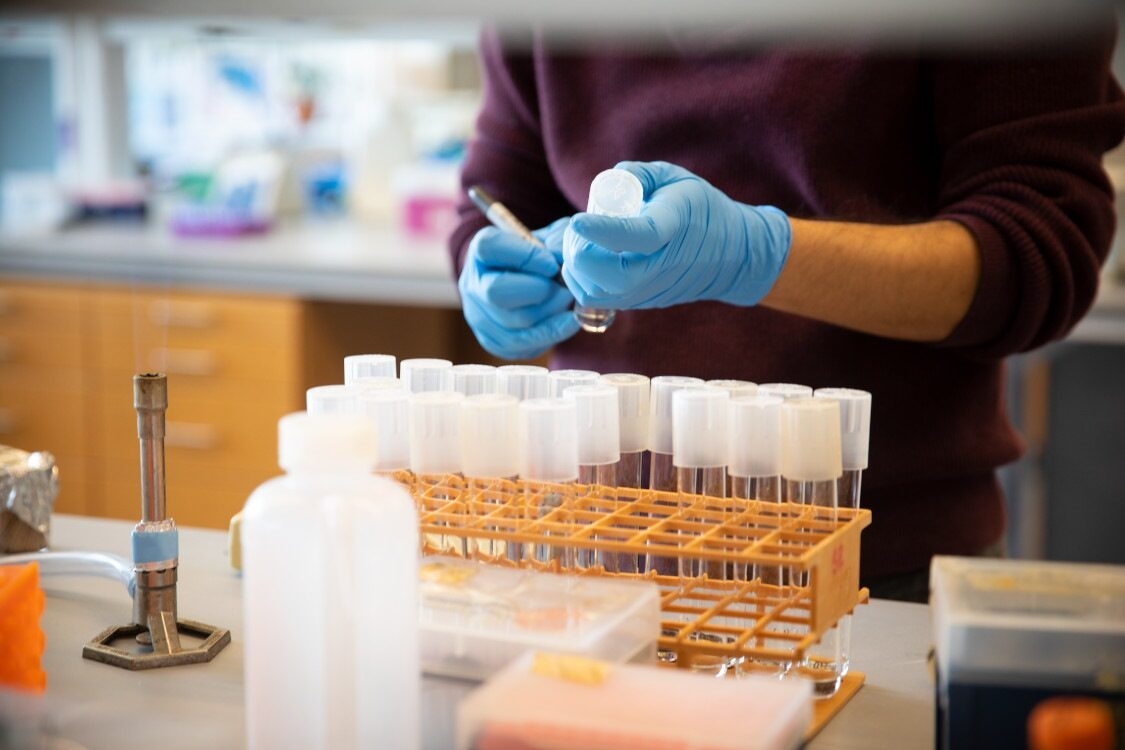Gaining Hands-on Research Experience

Blog Post
Cornell prides itself on being an exemplary research institution, and rightfully so. Home to hundreds of laboratories that encompass a variety of subject matter, passion for the subject and drive towards research are the key elements that you will need to be a part of the labs here at Cornell.
As a biology major who is on the pre-med track, I am used to taking classes which are more specific to human health and sciences. Here at Cornell, the biology major is a multidisciplinary subject matter that encompasses a lot of different yet equally interesting topics. In order to step out of my comfort zone and explore what is out there, I decided to conduct research in the Ecology and Evolutionary Biology Department at Cornell. I was completely new to this side of biology, but I was able to show my enthusiasm and motivation to learn something new through multiple cold emails and interview rounds with one of my favorite ecology labs. Thankfully, I was finally accepted into the Gordon and López-Sepulcre Labs, which studies the ecology-evolution feedback mechanisms in Trinidadian guppies. As an undergraduate research assistant in this lab, I contribute to various experiments, write research papers, and help in fish care. I have gained valuable lab skills like guppy dissection, serial dilution, pipetting, spectrophotometry and more!
Here’s a tried-and-tested, step-by-step guide to gaining hands-on research experience at Cornell, which I can absolutely vouch for.
Be bold
You don’t get what you don’t ask. Almost every research opportunity begins with a question in disguise of a cold email. Rarely does an opportunity like this bestow on your inbox (sometimes it does!). It may be awkward, or surprising even, to contact someone you have never talked to before, but sending cold emails to labs you are interested in joining is the traditional and reliable method of getting a research opportunity. Remember, professors are always keen to mentor undergraduates who show interest in their work; they want you as much as you want them!
Network
Sometimes, one simple conversation can open doors to countless opportunities. Conversing and networking with professors after classes or during office hours can help you secure a research position in their lab. This will give you a chance to understand their research, as well as give professors an opportunity to learn about your research interests, whether or not you are fit for their lab and vice versa.
Keep an open mind
As cliché the saying, “When one door closes, another one opens” is, it is also equally true. Sometimes, the research lab you want to get into so badly might not work out, due to several factors. Remember, it is not a reflection of your capacity. Often times, research labs already have enough undergraduates working. In such cases, don’t be afraid to look beyond your comfort zone. From psychology labs to biomedical labs to veterinary labs, Cornell has it all. And you never know what might grab your interest. Don’t be afraid to try!
Research is a demanding but very fulfilling experience. Personally, to get a chance to practice the sciences I study has been wonderful. If you are thinking about getting into research, stop thinking and send in that email. It is definitely worth it!

